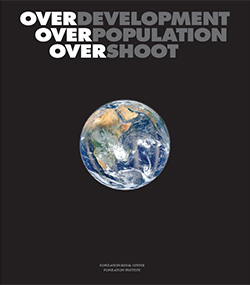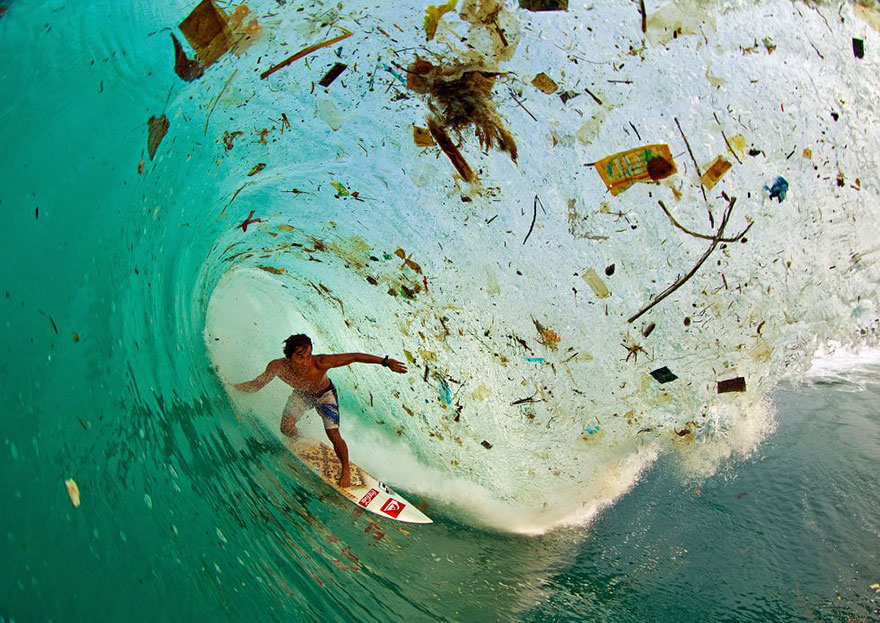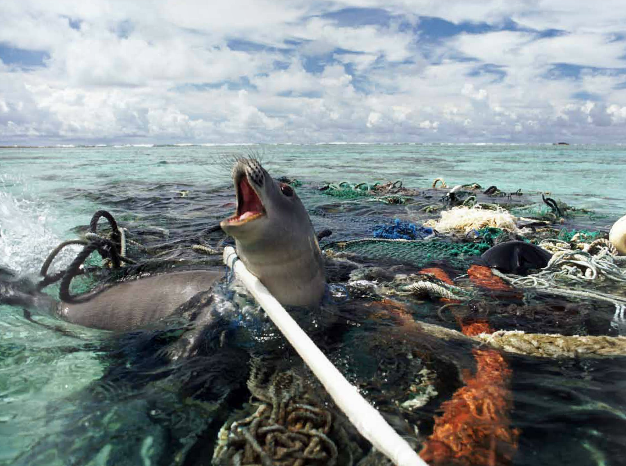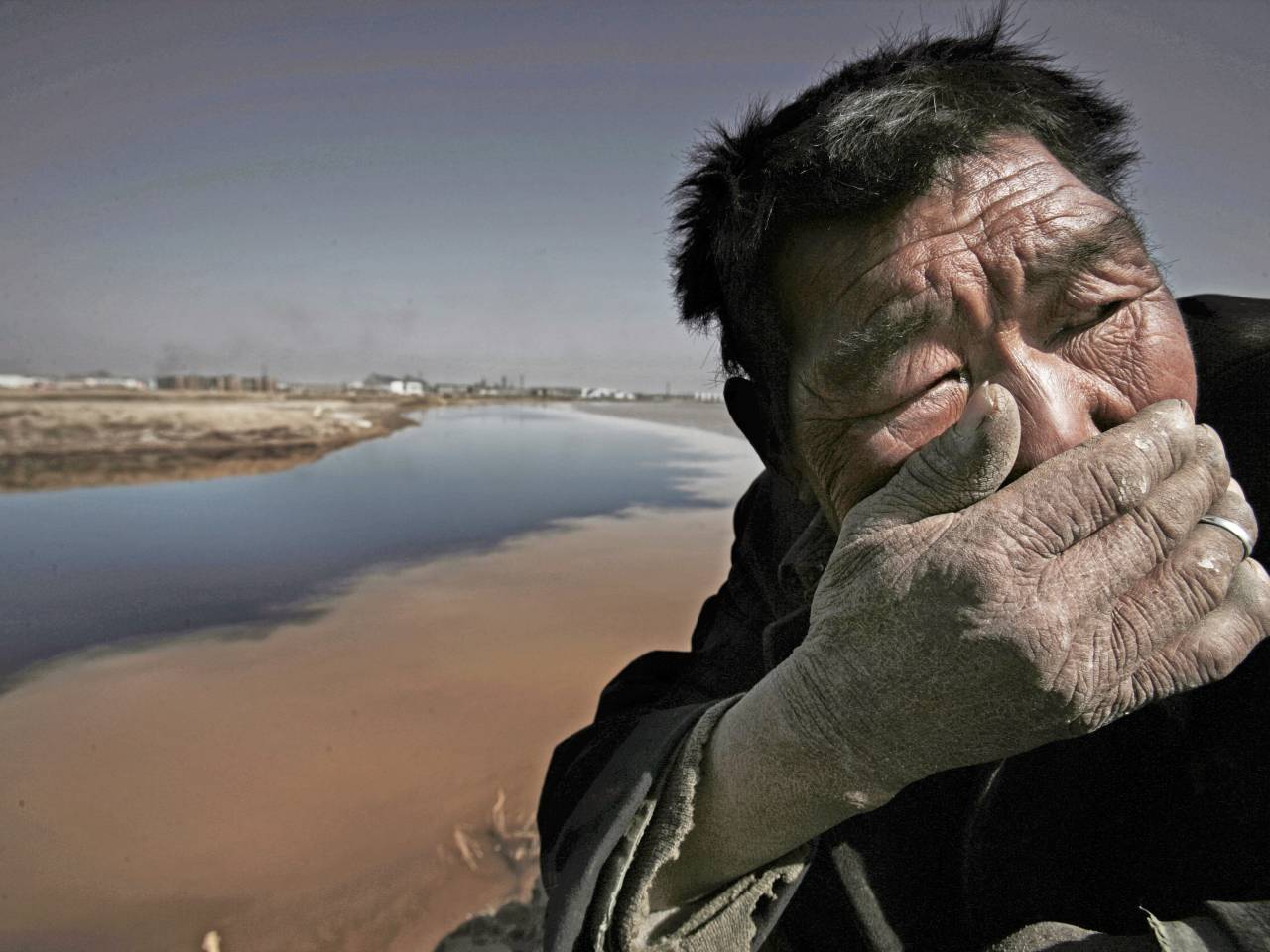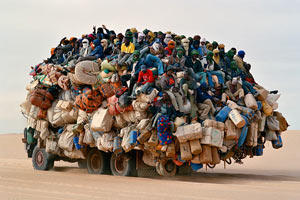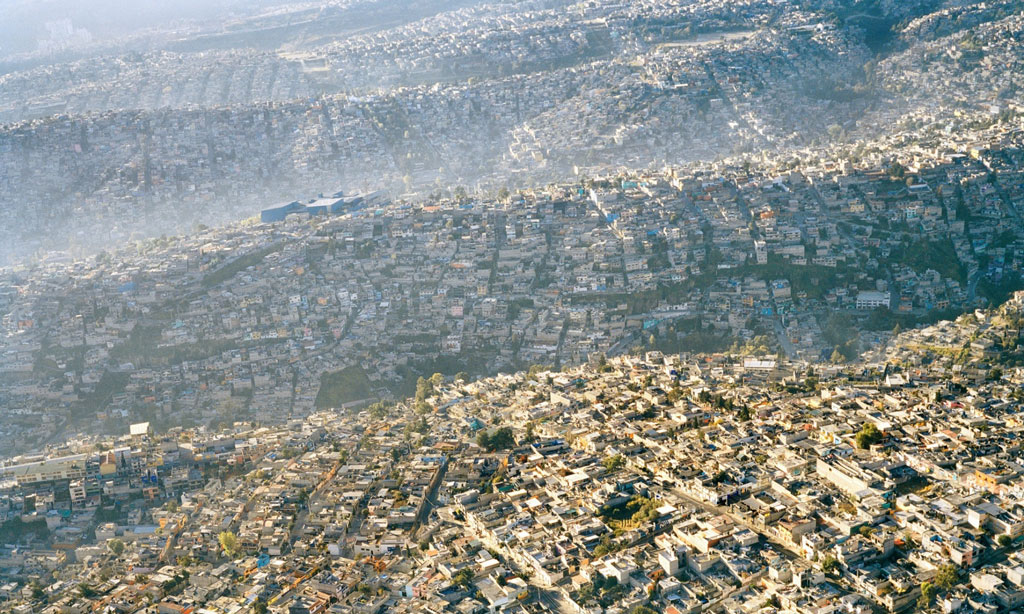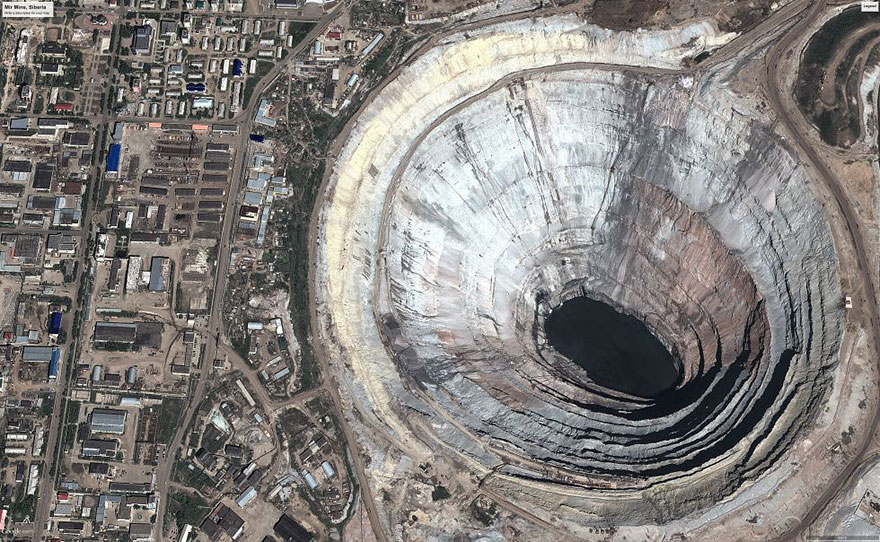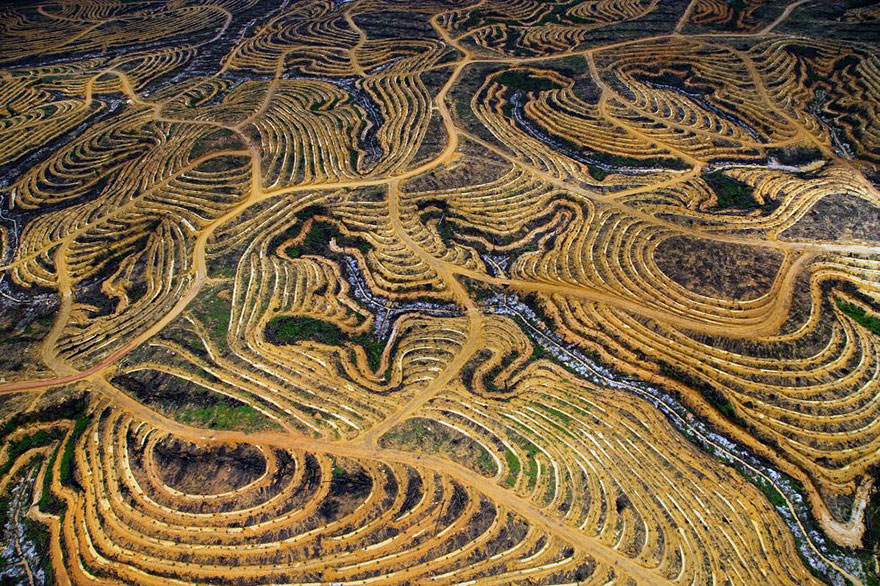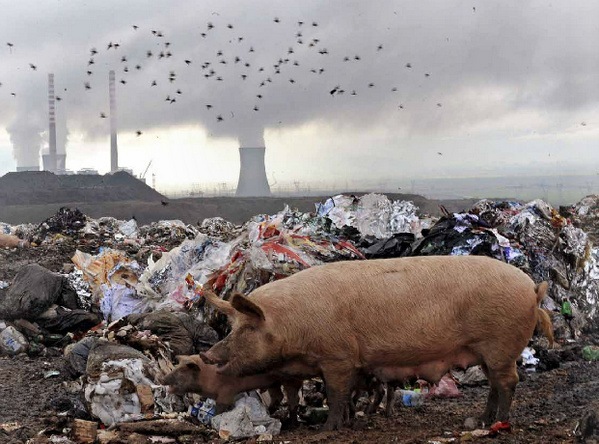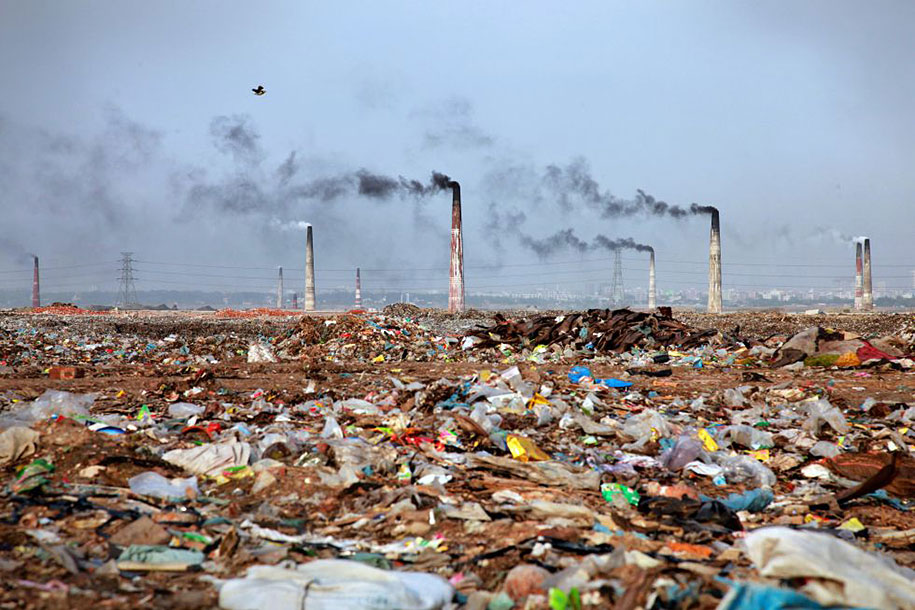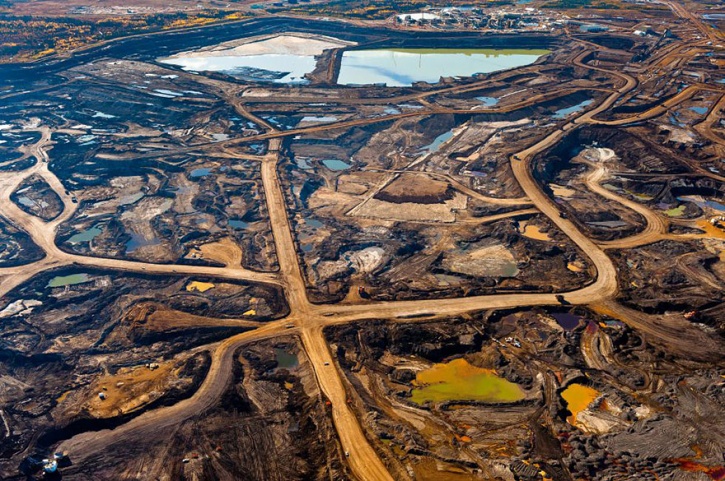SUSTAINABILITY
The second under-reported, existential threat to our civilization can best be understood by using math. For most of us, it is a very difficult psychological task to accept that our species has become a collective threat to itself. I just don't think we're wired to readily make that connection, which might explain the cognitive dissonance that renders it so hard to correlate our collective behavior with its logical outcome.
Population growth makes just about every problem we face more difficult to solve. From national security concerns, to concerns about liberty and excessive regulation, to concerns about the ecosystem which sustains us all. For example, the graphic to the right illustrates how well atmospheric CO2 growth has tracked the world population trend over the past century.
The math is straight-forward. A growing population, at any rate of growth, eventually doubles. That's a factual statement. We have to look past our normal horizon of concern to appreciate the power of exponential growth. The video below is a good tool to help make sense of that concept.
Another way to think about exponential growth is through the lens of our family histories. The population was half of what it is today when I was born. It was half that when my grandfather was born.
The more people, the more need. The math tells us that eventually you run out of space. You run out of resources. It's more than just that. When the population increases, regulation increases. Personal freedom decreases. I don't think this is controversial: the more people you put in a finite space the less freedom each individual will be afforded. 100 years ago when there were only about 76 million Americans, one person's pursuit of their happiness infringed less upon another's.
This historical trend is easy to see. There weren't as many regulations 100 years ago because there weren't as many people. Much of America's regulatory history can be viewed as an attempt to treat the undesirable symptoms of population growth (the Clean Air Act and the Clean Water Act, for example). It is no secret that many of our laws, regulations, zoning requirements and covenants are attempts to prevent one person's liberty from infringing upon the happiness of others.
Generally speaking (and you can find exceptions to prove this rule), people who live in rural America enjoy more freedom with their property than people who live in densely populated urban centers. Moreover, this freedom has been consistently encroached upon over the course of the last 100 years by a steadily increasing national population density and the expanding American suburb and exurb.
More pertinent to my novel, there is a direct connection between the size of the population and national security. You can't feed our population of 325 million Americans (and growing) without our vulnerable critical infrastructure. The loss of the grid wasn't an existential threat 100 years ago because our grandparents were more self-reliant. They had more agricultural area per capita around their urban centers to meet their needs. It's just not possible for today's population, which is 4 times as large, to live as close to the land (as locally) as our relatives did 100 years ago. It is a statement of fact to say that many of our major metropolitan centers have outstripped their local carrying capacities. To meet the human need we now outsource the production of food and basic goods from around the world. That outsourcing makes us quite vulnerable to an interruption in supply.
Ironically, it was the advent of reliable, widely available electrical power that brought the key technologies online that allowed America to increase its short-term carrying capacity from about 76 million people 100 years ago to about 325 million people today. Those key technologies include: fertilizers, pesticides, mechanical irrigation, farm machinery, refined fuel to power that machinery, and food processing factories.
From a certain point of view, America has a very efficient food system capable of feeding an incredibly large population. However, every component of that system is now dependent on electrical power, including the manufacture of certain seeds, all aspects of farming, food processing, food packaging, food distribution and refrigerated food storage. In other words, America's population has grown so large that our lives and the lives of our children and grandchildren are now absolutely dependent on a vulnerable power grid.
Whether you're progressive or conservative, adding more people makes it harder to create the world you want to see.
You can search the sustainability category of my blog to find more resources on this topic and to engage me on the matter.
You'll find spoilers below. If I were you, I wouldn't venture any further down this page until you've finished the series.
What effect does an increasing population have on the ecosystem which sustains us?
- You can find spectacular images of this effect below. To learn more about this photo project click here.
- Al Bartlett gives a great lecture about this topic here.
- I review Elizabeth Kolbert’s Pulitzer Prize winning The Sixth Extinction which sheds light on this question here.
- This blog post might also be of interest: Are There Too Many People?
There are over 7 billion humans alive today. We all need to eat. We all need clothes. We all need shelter. Most of us will secure means of transportation, comfort, entertainment. All these things require energy to produce. And all these things are being provided by the finite resources of our planet. What do you think is a sustainable number for our population?
- I consider that question in this blog post: How Many People Should There Be?
You can find my interview with Jack below. He was unapologetic in that interview about his intention. If it were up to you to talk him out of it, what would you offer as a humane solution?
- I blog about the ethics of population here.
Below are a few organizations with a range of philosophies that I’ve partnered with in order to provide some resources to learn more about the sustainability of the human population.
National security is viewed as an issue on the right, politically, and sustainability as an issue on the left. It seems to me that renewable energy (wind, solar, geothermal, etc.) could contribute a lot to the interests of both parties. What role might renewables have in making a more secure and more sustainable civilization?
